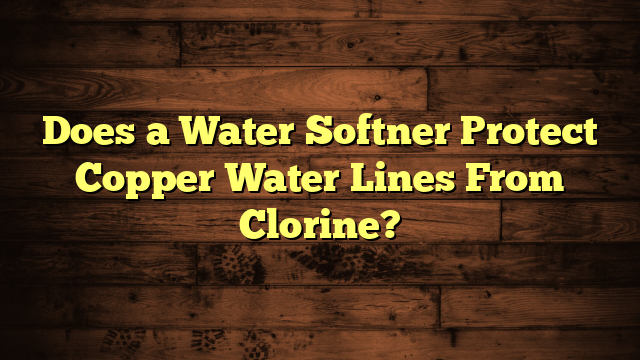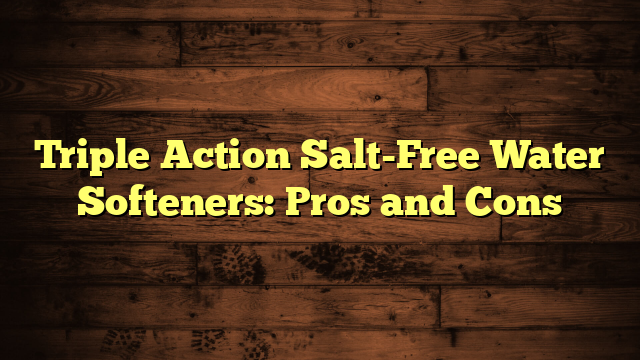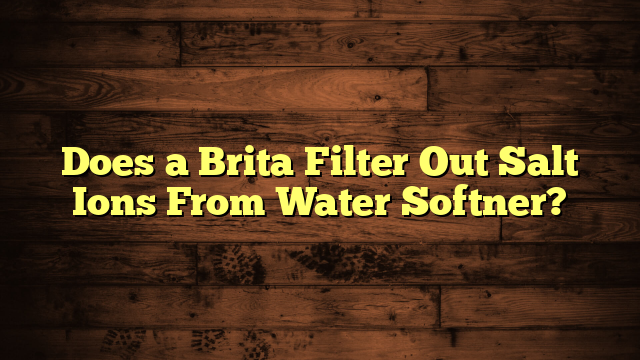Does a Water Softner Remove Nitrates?
Did you know that nearly 10% of U.S. drinking water sources exceed the safe nitrate level of 10 mg/L? While you might consider a water softener to improve your water quality, it's important to understand that these systems primarily target hardness minerals and don't actually remove nitrates. If you're relying on a water softener to address this issue, you may be overlooking other effective solutions. So, what are the best options for ensuring your water is safe and clean?
Key Takeaways
- Water softeners primarily address hardness by exchanging calcium and magnesium for sodium ions, not removing contaminants like nitrates.
- Nitrates in water come from agricultural runoff and livestock waste, which water softeners are not designed to eliminate.
- Testing for nitrates is essential; water softeners do not affect nitrate levels and may miss harmful contaminants.
- For effective nitrate removal, consider reverse osmosis or ion exchange systems specifically designed for this purpose.
- Regular monitoring and maintenance of any water treatment system are crucial for ensuring water safety and compliance.
Understanding Water Softeners
When it comes to improving your home's water quality, understanding water softeners is essential. These systems primarily focus on reducing hardness in water, which is caused by minerals like calcium and magnesium.
By using a process called ion exchange, water softeners replace these hard minerals with sodium ions, making your water feel smoother and preventing scale buildup in pipes and appliances.
You might wonder how this relates to water treatment methods. Water softeners are one option among various treatment methods available today.
While they effectively enhance the feel and taste of your water, they don't remove contaminants like nitrates or bacteria. So, if your main concern is hardness, a water softener is perfect.
However, if you're dealing with issues like nitrates, you'll need to explore other solutions, such as reverse osmosis or activated carbon filters.
What Are Nitrates?
Nitrates are chemical compounds that naturally occur in the environment, primarily found in soil and water. You might encounter nitrates from various nitrate sources, such as agricultural fertilizers, livestock waste, and even certain food products.
These compounds are vital for plant growth, but they can pose health effects when consumed in elevated levels. For instance, high nitrate concentrations in drinking water can lead to a condition called methemoglobinemia, or "blue baby syndrome," particularly in infants. This condition affects the blood's ability to carry oxygen, which can be life-threatening.
Adults aren't immune to the health risks either, as prolonged exposure to high nitrate levels may be linked to certain health issues, including thyroid problems and some cancers.
Understanding where nitrates come from and their potential impacts on health is important for making informed decisions regarding your water quality. If you live in an area where agriculture is prevalent or if your water supply has tested positive for nitrates, it's important to reflect on how to address this issue effectively.
Knowledge is your best ally in ensuring safe drinking water for you and your family.
How Nitrates Enter Water Supply
Contamination of water supplies with nitrates often stems from human activities and natural processes. Understanding how nitrates enter our water supply is essential for recognizing their potential risks.
One primary nitrate source is agricultural runoff. When farmers apply fertilizers to crops, excess nutrients can wash away during rainstorms, making their way into rivers, lakes, and groundwater. Livestock farming also contributes, as manure can leach nitrates into nearby water sources.
Urban areas aren't exempt either. Wastewater treatment plants can discharge nitrates, especially if the system isn't adequately maintained. Furthermore, septic systems can fail, leading to nitrate leaching into the soil and, ultimately, the water supply.
Natural processes, like the decomposition of organic matter, can introduce nitrates as well. However, the environmental impact of human activities far outweighs these natural contributions.
High nitrate levels can lead to water quality issues, harming aquatic ecosystems and posing health risks for humans. By recognizing these nitrate sources, you can take steps to mitigate contamination in your area, whether through better agricultural practices or advocating for improved wastewater management.
Water Softener Mechanism
A water softener works by using a process called ion exchange to remove hard minerals from your water supply. This system typically targets minerals like calcium and magnesium, which contribute to water hardness.
When you choose a water softener, you'll find different water softener types, including salt-based and salt-free systems.
In a salt-based water softener, hard water flows through a resin tank filled with tiny beads coated in sodium ions. As the hard water passes through, calcium and magnesium ions swap places with the sodium ions—a process known as ion exchange. This effectively reduces the hardness of your water, making it gentler on your plumbing and appliances.
Salt-free systems, on the other hand, don't actually soften water in the same way. Instead, they use a different method, often involving a catalytic process that alters the structure of hard minerals, preventing them from forming scale.
Regardless of the type you choose, understanding the ion exchange mechanism is essential for optimizing your water quality.
With the right water softener, you'll enhance not only the taste and feel of your water but also protect your home from the damaging effects of hard water.
Limitations of Water Softeners
While water softeners are great for removing hard minerals, they aren't effective against nitrates.
The ion exchange process used in these systems simply doesn't target nitrate removal, leaving this contaminant in your water.
Understanding these limitations is essential for anyone looking to improve their water quality effectively.
Nitrate Removal Ineffectiveness
It's essential to understand that just because your water feels soft doesn't mean it's safe from nitrates.
If you're concerned about nitrate levels in your water supply, consider alternative treatment options specifically designed for nitrate removal, such as reverse osmosis systems or specialized ion exchange units.
Being informed will help you make the right choices for your health and well-being.
Ion Exchange Limitations
Water softeners, primarily designed to reduce hardness minerals like calcium and magnesium, face significant limitations when it comes to removing nitrates from drinking water.
The ion exchange process used by these systems effectively swaps out hard minerals for sodium or potassium, but it struggles with other water contaminants, especially nitrates.
Nitrates are a different kind of challenge. Unlike hardness minerals, they don't get removed through the ion exchange method. Instead, they often require specialized filtration systems, such as reverse osmosis or anion exchange systems, specifically designed to target these contaminants.
Moreover, relying solely on water softeners can give you a false sense of security. While your water may feel softer, the nitrates could still be lurking, posing potential health risks.
If you're concerned about nitrate levels, it's essential to test your water and consider alternative filtration methods.
Alternative Solutions for Nitrate Removal
Nitrate contamination in drinking water can pose serious health risks, prompting many homeowners to seek effective removal methods. One reliable solution is the installation of nitrate filters, specifically designed to target and eliminate nitrates from your water supply.
These filters can vary in type, but most utilize processes like ion exchange to effectively reduce nitrate levels.
Another powerful option is reverse osmosis. This method forces water through a semipermeable membrane, effectively removing not just nitrates, but also other contaminants.
With a reverse osmosis system, you'll enjoy cleaner, safer drinking water right from your tap. While it may require a higher initial investment, many users find the long-term benefits and peace of mind well worth it.
Additionally, some homeowners opt for a combination of these methods for enhanced filtration. You might consider both a nitrate filter and a reverse osmosis system, ensuring thorough protection against various contaminants.
Before deciding on a solution, examine your specific water quality needs and consider consulting with a water treatment professional. They can help you choose the best system to keep your drinking water safe and healthy.
Testing Water for Nitrates
To guarantee the effectiveness of any nitrate removal solution, testing your water for nitrates is an essential step. Nitrate testing helps you understand the specific levels of nitrates in your water supply, allowing you to determine if a treatment system is necessary. You can conduct this testing using various methods, including test strips, kits, or sending samples to a laboratory.
When you opt for test strips or kits, you'll usually follow a straightforward process. Simply collect a water sample, dip the test strip, and compare the color change to the provided chart. This method provides quick results, but keep in mind that laboratory tests tend to offer more accurate and thorough insights into your water quality.
Regular nitrate testing is crucial, particularly if you live near agricultural areas, as runoff can greatly impact your water supply. By closely monitoring nitrate levels, you can make informed decisions about your water treatment options.
Choosing the Right Treatment System
When you're looking to choose the right treatment system for nitrate removal, it's essential to understand your options.
Different types of systems, such as reverse osmosis or ion exchange, cater to various needs and budgets.
Types of Treatment Systems
Choosing the right treatment system for your water can be a challenging task, especially with various options available.
You'll want to take into account factors like your specific water quality needs, budget, and environmental impact. One popular choice is advanced filtration systems, which can effectively remove various contaminants, including nitrates.
These systems often use multiple stages of filtration to guarantee your water is clean and safe. They can range from reverse osmosis units to carbon filters, each designed for different contaminants.
If you're looking for eco-friendly solutions, take into account options that utilize natural materials and processes, minimizing harmful waste.
Another option is ion exchange systems, which can soften water and remove certain impurities. However, keep in mind that these systems may not be as effective for nitrates, so double-check their specifications before purchasing.
Lastly, there are whole-house systems that treat all the water entering your home, providing convenience and peace of mind.
Understanding Nitrate Removal
Before making a decision, it's wise to test your water for nitrate levels and consult with a water treatment professional.
They can help you select the right system that meets your needs, ensuring that your drinking water is clean, safe, and free from harmful nitrates.
Cost Considerations and Options
Testing your water for nitrate levels is just the first step in addressing this issue; next, you'll want to evaluate the cost and options for an effective treatment system.
When it comes to removing nitrates from your water, several choices are available, each varying in cost effectiveness. Reverse osmosis systems are popular for their efficient nitrate removal, but they can be pricey upfront and may require regular maintenance.
If you're on a tighter budget, consider ion exchange systems, which can effectively reduce nitrate levels at a lower cost. Furthermore, some households opt for granular activated carbon filters, which are generally more affordable and easier to install, though they may not be as effective for high nitrate concentrations.
Always weigh the long-term costs of maintenance and filter replacements against your initial investment. Look for budget options that fit your needs without compromising water quality.
Don't forget to factor in water testing expenses to monitor nitrate levels after treatment. By evaluating these cost considerations thoroughly, you can make an informed decision that guarantees clean, safe water for you and your family.
Frequently Asked Questions
Can Water Softeners Improve the Taste of Water With Nitrates?
Water softeners won't directly improve the taste of nitrates, but they provide soft water, which can enhance overall taste. You might notice a smoother flavor in your water, making it more enjoyable to drink.
How Often Should I Test My Water for Nitrates?
You should test your water for nitrates at least once a year, especially if you live near nitrate sources like farms or septic systems. Regular water testing helps guarantee your water remains safe and healthy.
Are There Health Risks Associated With High Nitrate Levels?
High nitrate levels can pose serious health impacts, especially for infants. You should consider potential nitrate sources like fertilizers and wastewater. Regular testing helps you identify risks and take necessary precautions to protect your health.
Do Water Softeners Affect the Efficiency of Other Water Treatment Systems?
Water softeners can impact system compatibility with other treatment systems. They may reduce treatment efficiency by altering water chemistry, which can affect how effectively other systems perform, so it's important to contemplate their interactions.
Can I Use a Water Softener With a Nitrate Removal System?
Imagine a knight, your water treatment, wielding a sword—nitrate filtration. You can indeed use a water softener alongside it; just make certain they work together harmoniously, so your quest for clean water remains victorious.
Conclusion
To sum up, while water softeners are fantastic for tackling hard water, they won't touch nitrates. If you want to guarantee your drinking water is safe and clean, you'll need specialized systems like reverse osmosis or ion exchange. Think of these solutions as the superheroes of water treatment, swooping in to save the day! So, don't rely on a water softener alone; make sure to test your water and choose the right treatment system for your needs.







